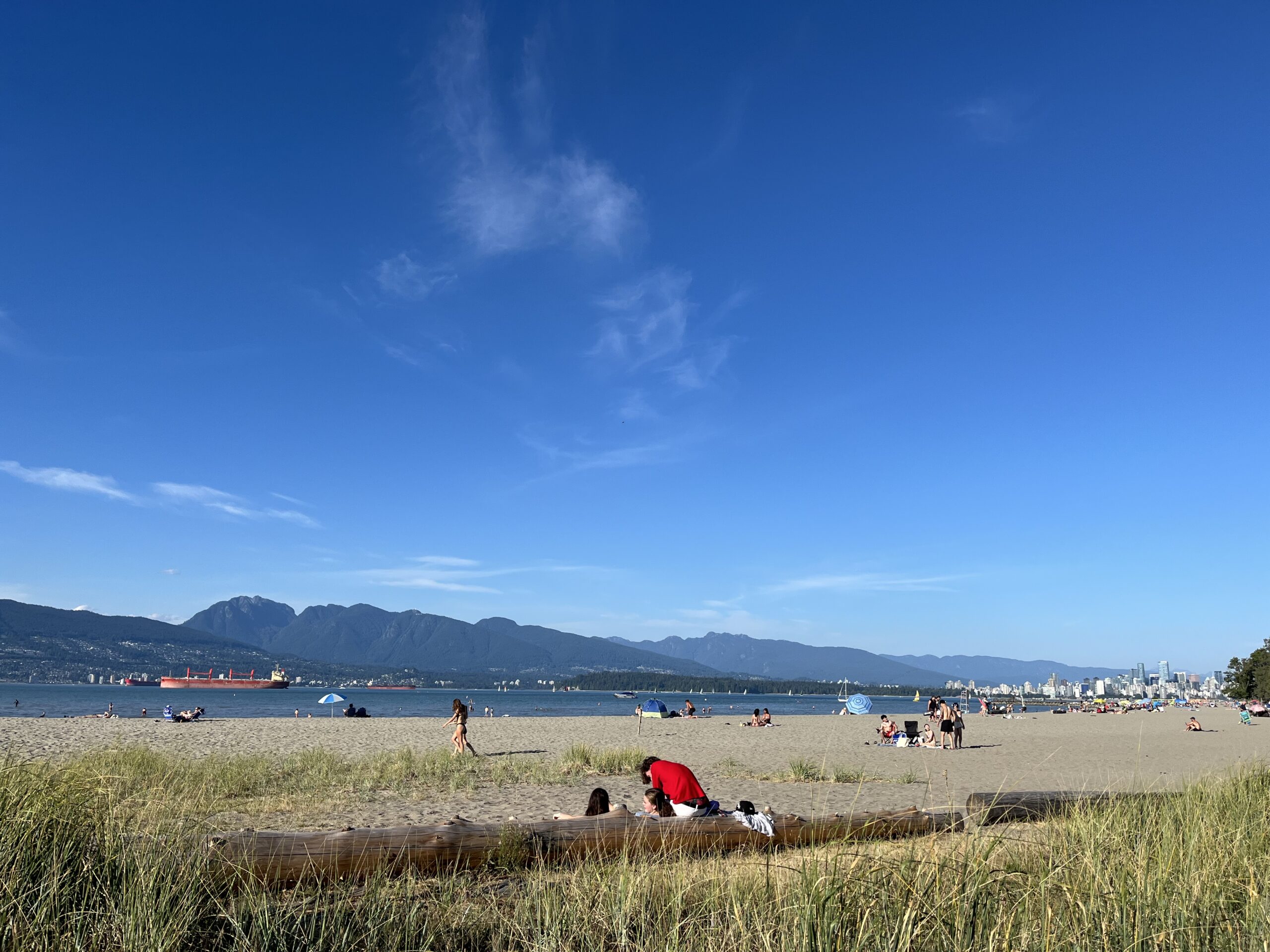Thinking about moving to Vancouver? You’re not alone. Every year, thousands of people from across Canada and around the world set their sights on British Columbia’s largest city. With its stunning natural surroundings, multicultural vibrancy, and strong job market, Vancouver remains one of the most desirable places to live in the country.
But moving to Vancouver isn’t just about choosing a place with beautiful views. It’s about understanding the lifestyle, the costs, and the rhythm of life here so you can truly feel at home.
At Vancouver Home Hub, I have lived in this city long enough to know what really matters when settling in. Here’s a practical, local guide to help you navigate the move and thrive in your new community.
1. Understand the Cost of Living in Vancouver

(picture of me (far right) and some friends playing beach volleyball in Kitsilano Beach)
Living in Vancouver is not cheap. In fact, it’s consistently ranked as one of the most expensive cities in North America. The high cost of housing is the biggest contributor. As of 2025, the average price of a detached home in Greater Vancouver is over $1.8 million, while condos average around $750,000. Renting isn’t exactly budget-friendly either—expect to pay over $2,500 for a one-bedroom apartment downtown.
Utilities, groceries, and transportation also add up. You’ll want to factor in:
- Higher fuel and insurance costs if you drive
- Premiums on grocery items, especially imported goods
- Provincial Medical Services Plan (MSP), which is mandatory for most residents
Helpful Resource: City of Vancouver Cost of Living Report
2. Choose the Right Neighbourhood
Vancouver is a city of distinct neighbourhoods, each with its own vibe. Your experience living in Vancouver will depend largely on where you choose to live. Here are a few options for different lifestyles:
- Families: Dunbar, Kerrisdale, or parts of Burnaby and North Vancouver offer great schools and green space.
- Young professionals: Consider Mount Pleasant, Olympic Village, or Commercial Drive for walkability and social life.
- Newcomers: Richmond, Surrey, and Coquitlam are more diverse, family-oriented, and relatively affordable.
Want to explore hidden gem neighbourhoods? Check out our guide on lesser-known local favourites.
3. Prepare for the Climate
One of the most surprising parts of moving to Vancouver is how different the climate is compared to the rest of Canada. It’s mild, but very wet. Winters are damp and grey rather than cold and snowy, while summers are typically warm, dry, and beautiful.
Pro tip: Invest in a good waterproof jacket and solid footwear. Locals rarely carry umbrellas, but you’ll quickly learn to appreciate weatherproof gear.
4. Learn About Public Transit
If you’re used to driving everywhere, Vancouver’s transit system might pleasantly surprise you. TransLink runs a reliable network of buses, the SkyTrain (light rail), and the SeaBus. You can get across the region easily without needing a car—especially if you live close to a SkyTrain station.
Bonus: There are tax benefits and employer transit programs that can save you money.
Helpful Resource: TransLink Trip Planner
5. Embrace the Vancouver Lifestyle
Living in Vancouver means access to the outdoors like nowhere else. Whether it’s hiking in Lynn Canyon, skiing on Grouse Mountain, or paddleboarding at Kits Beach, you’re never far from nature. But it’s not all hiking boots and yoga pants.
The city also offers a thriving food scene, arts and culture events, and a tech-focused job market that attracts talent from around the world. Want to live like a local? Try this:
- Join a community sports league or co-working space
- Visit farmers markets like Trout Lake or Riley Park
- Explore cafes and independent shops in Main Street or Mount Pleasant
6. Know the Basics for Newcomers
If you’re moving to Vancouver from outside Canada, you’ll need to get set up with some key documents:
- SIN (Social Insurance Number)
- BC Services Card for healthcare
- BC Driver’s Licence (required after 90 days if you have an out-of-province licence)
There are also great settlement services across Metro Vancouver to help with language training, job searching, and community connection.
Helpful Resource: WelcomeBC Newcomer’s Guide
7. Budget for Unexpected Costs
Living in Vancouver comes with additional costs that can catch newcomers off guard:
- Strata fees (for condos or townhouses)
- Annual property taxes
- Home insurance and earthquake coverage (this is earthquake country, after all)
Make sure to leave a buffer in your budget to cover these and enjoy a smoother transition.
8. Final Thoughts: Is Vancouver Right for You?
Moving to Vancouver is a big decision. If you value access to nature, diversity, a laid-back but ambitious culture, and the chance to live in one of the most scenic cities on Earth, it’s likely a great fit.
That said, the cost of living in Vancouver is real—and so is the housing crunch. But if you’re strategic with where you live and how you integrate into the city, Vancouver can offer an incredibly high quality of life.
At Vancouver Home Hub, we’re all about sharing what it’s really like to live here. Whether you’re just starting your search or already making the leap, we’re here to help you settle in.
Related Reads:
- [Best Neighbourhoods in Greater Vancouver to Buy a Home in 2025]
- [What No One Tells You About Living in Vancouver’s Rainy Season]
- [Local’s Guide to Moving Day in the Lower Mainland]
Read more:
Do You Really Need a Realtor to Buy a Home in Vancouver?
Renting vs Buying in Vancouver: Which Is Better in 2025?
Is It Worth Renovating Before Selling Your Vancouver Home?
Is It Better to Buy a Pre-Sale or Resale Condo in Vancouver?
How Aging Population Trends Influence Vancouver Housing Demand
My name is Jay, a longtime Metro Vancouverite sharing local real estate tips and my own photos of the city’s homes and neighbourhoods here on Vancouver Home Hub. Hope you find my blog useful! Feel free to reach out anytime at vancouverhomehub@gmail.com if you have questions.


Leave a Reply